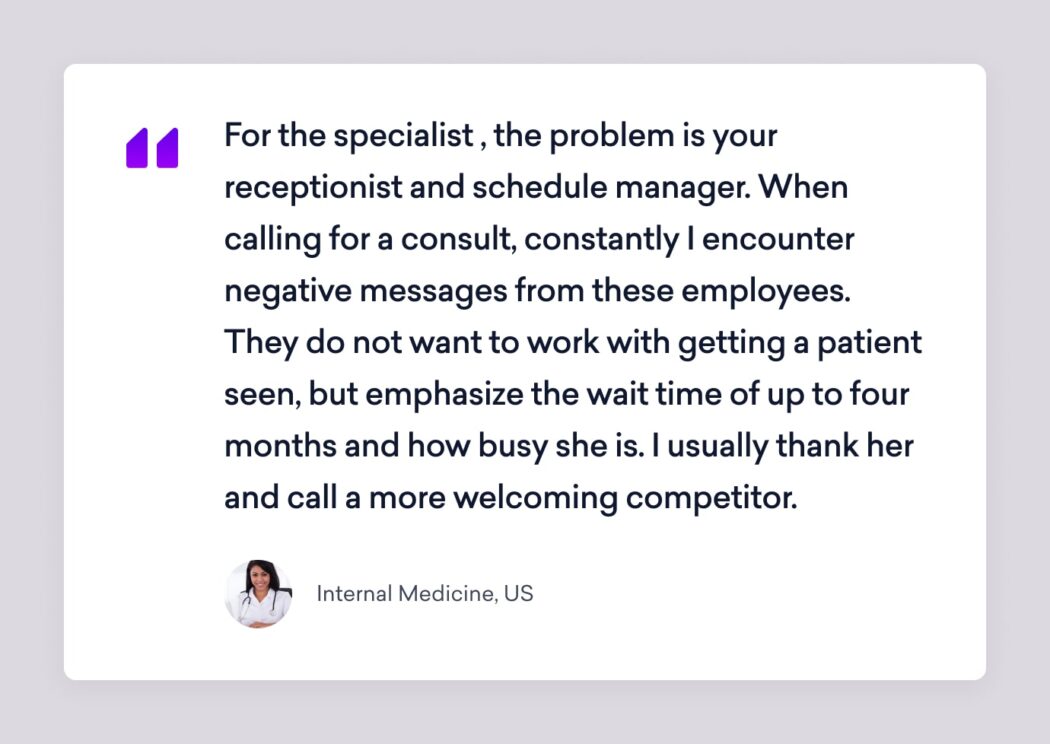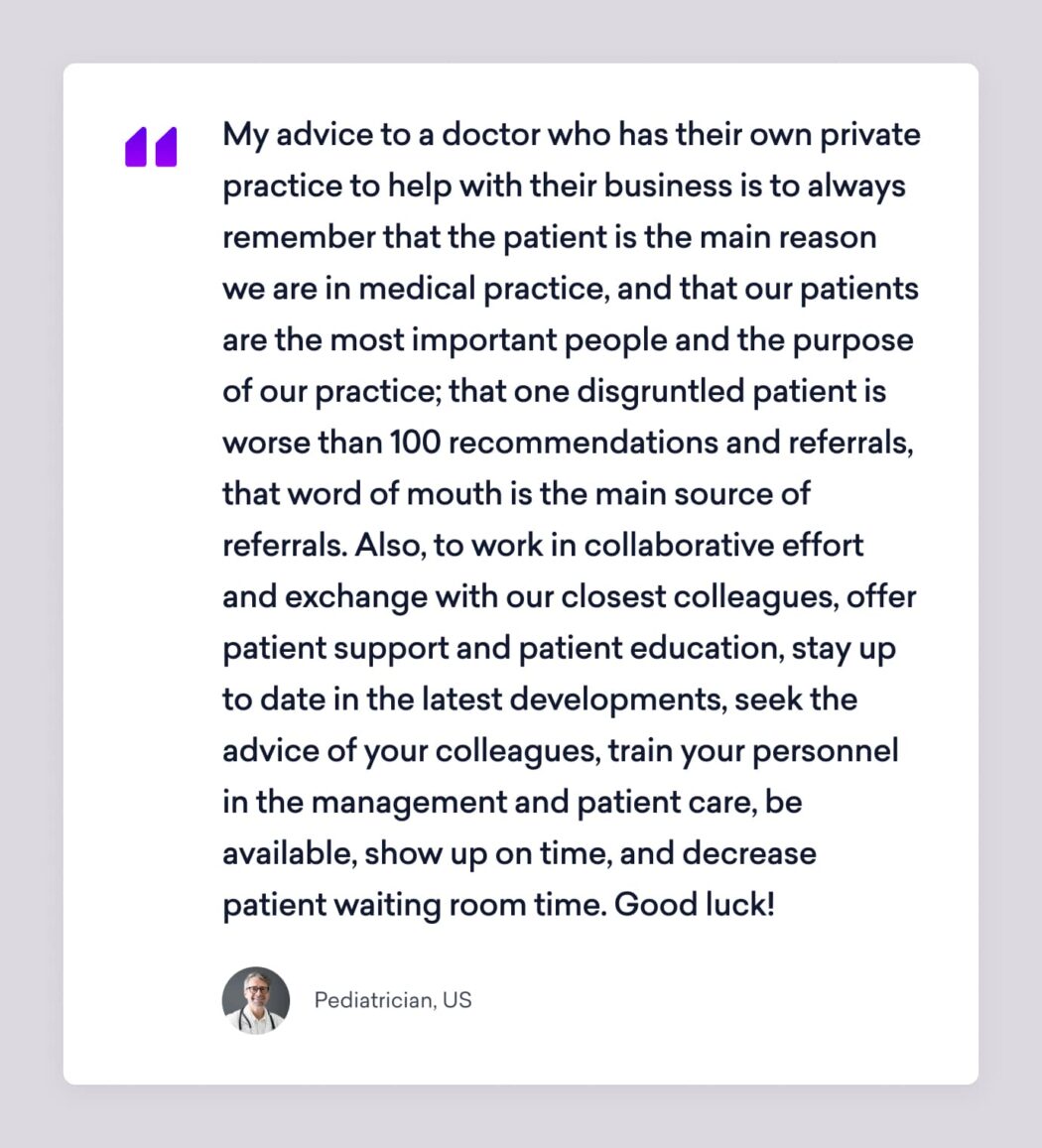
Managing your medical practice can indeed be quite overwhelming. Physicians often find themselves juggling multiple tasks while attending to their patients. However, the task can be significantly eased by understanding some of the key elements of managing a medical practice. Effective medical practice management is necessary for every practice, whether it be a solo physician’s office or a large healthcare institution in any specialty. In essence, practice management medical operations require striking a balance between patient care and business aspects. In this article, we will delve into the concept of what is practice management in healthcare and offer some useful tips on effectively managing medical practices.

What is medical practice management?
Effective medical practice management is necessary for every practice. Physicians’ workload can be substantial, and poor practice management can further worsen their output and efficiency. As part of our practice management definition, the American Medical Association (AMA) emphasizes that the essence of practice management is to improve practice efficiency, professional satisfaction, and healthcare delivery.
Medical practice management involves efficient organization and management of front-office functions such as registrations, scheduling, and patient tracking as well as back-office functions such as referrals, payments, revenue cycle management and patient checkout. Proper practice management allows physicians to focus completely on treating their patients without any interruptions to workflow. In other words, this is what is medical practice management.
Elements of managing your own practice
There are certain aspects of a medical practice that should be properly managed on a day-to-day basis. Below we will delve into some of the essential resources of medical practice management or physician practice management.
1. Human resources
Coordinating staff is very important in a medical practice. In a recent poll, 38% of surveyed physicians in the Sermo community said staffing was the biggest challenge they faced in their medical practice management. Healthcare practice management also includes human resource management. Coordinating staff is very important in a medical practice. Human resource management doesn’t end with recruiting staff and especially in a medical practice, there is much more to handle. A medical practice manager has to oversee scheduling of shifts for staff, training and supervising staff and manage payroll.
Some medical practices outsource their human resource management activities such as recruitment and training. However, proper medical practice management will still need to oversee the outsourcing and follow up with such third-party companies.
2. Medical billing
Your medical training unfortunately does not include learning how to balance sheets and yet this is a core part of your business. Payment for medical services can be rather complicated as one has to deal with medical coding, billing and claims. It is important this function is well organized and handled efficiently to ensure physicians and other clinicians are paid for their services.
Just like human resource management, some medical practices may choose to outsource this. Some others prefer to handle this in-house. There are pros and cons of both methods of medical billing. Medical practices may also choose to use financial practice management softwares that can help with consolidating medical billing, generating reports and clearing functional balance sheets.

3. Patient experience
Front office activities that contribute to patients’ experience are another important element of practice management healthcare. Patients are your customers and how they are treated can affect the success of a physician’s practice. Managing new patient registrations, patient visit scheduling, patient tracking and follow ups are all part of patient service.
In creating a wonderful patient experience to retain patients, the waiting room can not be overlooked. The medical practice management has to ensure the waiting room environment is clean and comfortable. A great addition is also if patients don’t end up waiting too long in the waiting room. Great communication with patients who are waiting will also help better manage patients.
4. Information technology
There is almost no practice today that doesn’t use information technology in its day-to-day operations. Healthcare requires reliable and secure communication and data storage. It is quite common to see medical practices use online tools and softwares that help with appointment scheduling, running your office’s website, processing claims, tracking patients, organizing electronic health records and potentially joining a Health Information Exchange. These software applications are collectively referred to as practice management healthcare software.
Most practices also make use of Electronic Medical Records to collect and manage patients’ health information. It is important that all software and communication methods used in your practice are HIPAA-compliant to ensure privacy and security of patient’s information.
5. Operations
This is an umbrella term for all the functions that occur in the medical practice. Operations, or managing the daily tasks of a medical practice, is often the most challenging part of practice management in healthcare. The medical practice management is responsible for ensuring all functions are carried out effectively to ensure professional satisfaction while making a profit.
This oversight function is core to the success of the business and can be very tasking. Medical practice management will need to understand the business plan for the medical practice and go through the cost of running the practice, patient satisfaction and cash inflow to be able to assess how profitable the practice is. In the event that losses are made, medical management will have to strategize on how to reduce cost in order to maximize profit.
Now, you might ask, “What is the difference between medical practice management and healthcare practice management?” While the terms are often used interchangeably, medical practice management refers specifically to the management of a physician’s practice, while healthcare practice management has a broader scope, including the management of hospitals and healthcare systems.

7 medical practice management tips
Now that we’ve discussed what is practice management, let’s dive into how to implement it effectively with these tips:
1. Hire a skilled and empathetic office manager
A skilled medical practice manager can make all the difference in your medical practice. An Internal Medicine physician in the US in our Sermo poll commented on the need for a great manager.

Having someone or a team who is well organized, a good communicator with healthcare professionals, empathetic and pays attention to detail can make things a whole lot easier.
2. Prioritize patient experience
Patient experience is very important. In a recent Sermo survey, bedside manner and practice reputation were the most common concerns with patients. It’s less costly to retain patients than acquire new patients. Constantly brainstorm ways to improve patient experience and train staff to treat patients well. An American Pediatrician who participated in our Sermo survey had this to say.

3. Audit your practice yearly
Auditing has many advantages. For one, it can help you track your cash flow and inventory management. Doing this yearly can help you assess your business better and prepare for a new year.
4. Embrace technology
Use technology in day-to-day tasks like scheduling patients, patient communication and inventory management. It saves time and also minimizes the chances of errors. Stay on top of emerging healthcare trends.
5. Use a good practice management software
A good practice management software can help with a number of functions such as sending reminders, automatic medical billing, EHR integration and scheduling. By using a practice management software, you can optimize administrative tasks and reduce burnouts.

6. Invest in training your staff
Invest in training and development of your staff. This helps them do their jobs better and ensure better patient satisfaction. Training can be in the form of conferences, short courses or seminars.
7. Strengthen your data security.
As earlier mentioned, it is important that patient data is kept confidential. This is also important for your practice’s reputation. It is good practice to have cybersecurity and IT professionals providing support for your practice management.
The success of your medical practice is important and you should be deliberate about it. These tips can help you in implementing effective medical practice management methods that can help you start your own medical practice or grow it.For more useful tips that will help you build a successful medical practice, sign up to Sermo today. Engaging with more than 1 million physicians across 90 specialties and 150 countries, Sermo offers a unique physician-first online community that allows clinicians to communicate about issues that are important to them and their patients.





